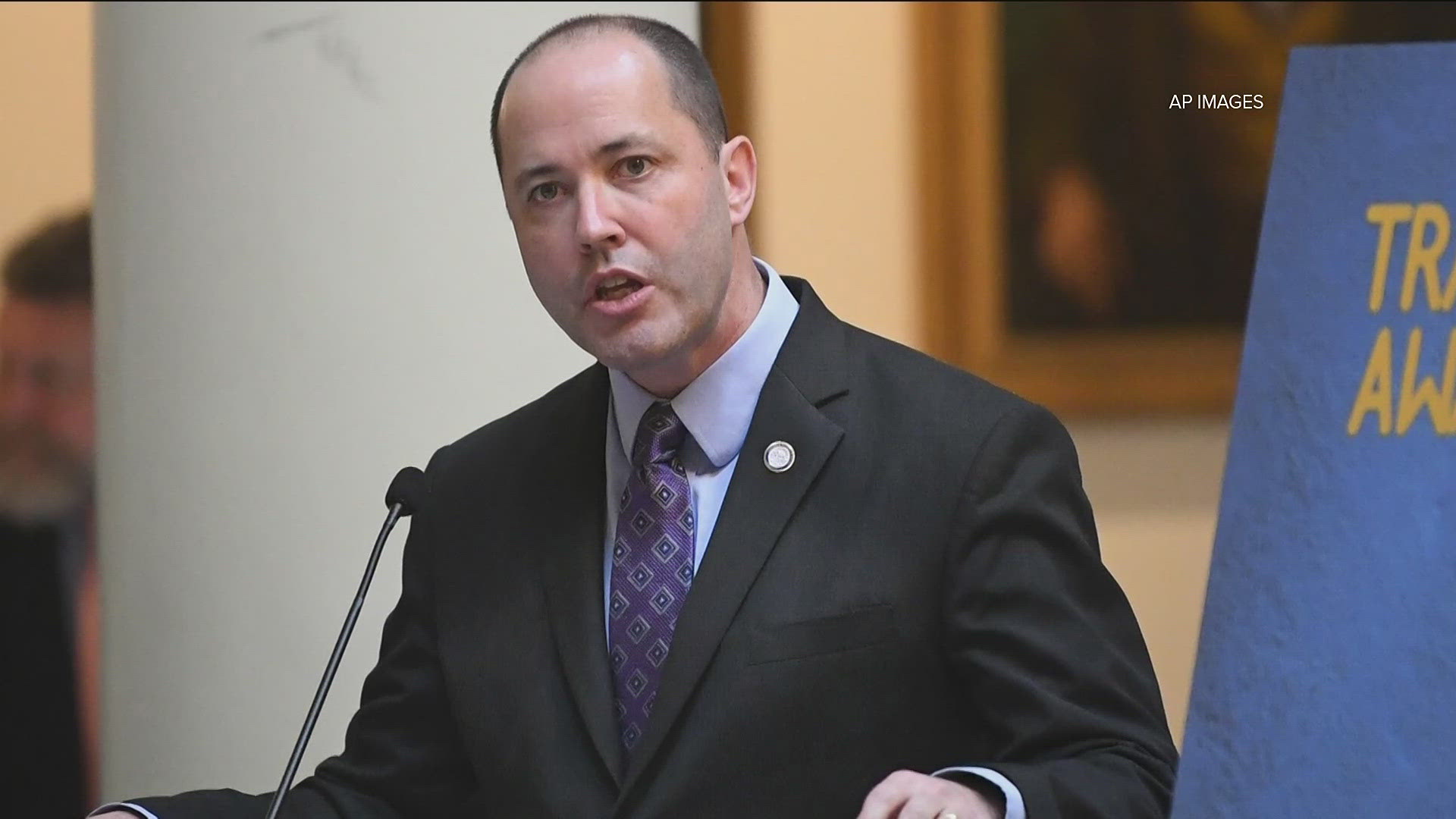ATLANTA — The Georgia Supreme Court on Wednesday issued an order removing a judge from the lower Court of Appeals.
The appeals court is Georgia's second-highest court, under the Supreme Court. Judge Christian A. Coomer of the Georgia Court of Appeals is being removed from office, according to the Supreme Court's order, after being "charged with patterns of behavior regarding his use of campaign funds and his dealings with a legal client that allegedly undermined public confidence."
The state Supreme Court conceded that "some evidence supports many" of Coomer's explanations of the activity, but that the Court was inclined to defer to the state Hearing Panel of the Judicial Qualifications Commission - which had recommended his removal.
Coomer had been an appeals court judge since 2018, appointed by former Gov. Nathan Deal. He won election to a full six-year term in 2020. Prior to that he was a private practice attorney and elected state representative in the Georgia House.
Under the order, he will not be eligible to be elected or appointed to any judicial office for seven years.


At heart, the order outlines, was a will that Coomer drafted for an elderly client that named him and his heirs as beneficiaries as well as a $130,000 loan Coomer took from the client that was not to be repaid until 2026, when the client would be over 80 years old.
Their relationship soured however, according to the order, and the client demanded to be repaid. The order outlines the client accusing him of “talking me into selling all my stocks at one time" to fund the loan, which left him owing "$11,000 more in taxes than I would have if I hadn’t sold them." Coomer repaid the loan in April 2020, according to the order, "only after (the client) filed a lawsuit against him."
The order also outlines three instances in 2018 in which Coomer "transferred campaign funds to his law firm operating account and, in two of those instances, failed to report the transfers on his campaign contribution disclosure report."
The Court also cited a 2018 family trip to Hawaii that Coomer tried to justify with a legislative purpose - he was still a legislator at that time, having not yet relinquished the role though his appointment to the Appeals Court had been announced. The Court found "ultimately the trip was entirely leisure" and that Coomer had paid the bill for several credit card purchases on that trip with funds from his campaign account.
"Judge Coomer reimbursed his campaign account for the trip expenses after the trip, although he did not do so fully until after the Georgia Campaign Finance Commission began investigating him," the order states.
The Hearing Panel heard Coomer's case across a three-month period earlier this year. After the initial recommendation to remove Coomer, the Supreme Court sent the case back to the Hearing Panel for more findings because many of the charges against him were from "before he became a judge or judicial candidate" and that the panel had "applied the wrong standard for determining whether a judge may be disciplined under the Georgia Constitution."
The Court's order noted that "none of the counts against Judge Coomer allege anything about actions he took in a judicial capacity."
Nonetheless, in a second report, the panel found that Coomer "acted in bad faith while engaging in all of the misconduct at issue in the surviving charges" and "reaffirmed its conclusion that Judge Coomer should be removed from office."
The Court wrote:
Judge Coomer’s principal argument against the Hearing Panel’s findings is that the evidence supports different findings instead. And he is right that there is evidence that could have supported different findings, had the Hearing Panel been convinced otherwise. But Judge Coomer’s argument is ultimately unpersuasive because the record does not compel the different findings that he prefers; instead, this record would have supported findings in either direction, and we defer to the findings that the Hearing Panel actually made (and that are supported by the record).
The order additionally critiqued Coomer's conduct during the hearing.
"...the Hearing Panel found multiple instances in which Judge Coomer was disingenuous, if not outright dishonest, in his testimony or the positions that he took before the Hearing Panel," it states.
The Court noted it also considered Coomer's history of public service, "including his having served honorably in the military," but concluded in also considering "the nature of the conduct at issue, and Judge Coomer's behavior during (the inquiry)" that "removal is the appropriate sanction."


